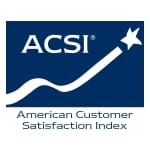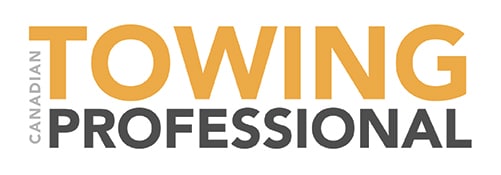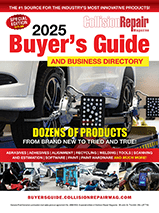ANN ARBOR, Mich.–(BUSINESS WIRE)–
Following last year’s dip, customer satisfaction with automobiles improves 3% to a score of 79 (out of 100), according to the American Customer Satisfaction Index (ACSI®) Automobile Study 2022-23. Luxury vehicles continue to outpace their mass-market counterparts, but the gap is shrinking, as the latter increases 3% to a score of 79, while the former climbs just 1% to a score of 81.
“Satisfaction with the auto industry as a whole has fully rebounded to pre-pandemic levels, and consumer demand is strong despite rising interest rates,” says Forrest Morgeson, Associate Professor of Marketing at Michigan State University and Director of Research Emeritus at the ACSI. “The supply chain kinks that slowed production during the pandemic are starting to wane, and more cars are back in stock. Nearly every aspect of the driver experience — including driving performance, safety, dependability, gas mileage, and warranties — is better. And, despite higher prices, value perceptions have improved as well. These factors bode well for automakers — and their sales figures — in the second half of 2023.”
Toyota races past mass-market competitors
Toyota leads mass-market vehicles — and the industry overall — after surging 5% to an ACSI score of 84.
The automaker’s production system appears to have made it more resilient in the face of pandemic-driven supply chain disruptions, while strong showings for gas mileage, dependability, and quality for the price factor into its successful year. Furthermore, despite Toyota dealers’ consistently low inventory, 35% of American car shoppers considered purchasing a Toyota product — more than any other car brand on the market.
Last year’s co-leader, Subaru, climbs 3%, earning it the second-place spot with a score of 82. Honda (up 5%) and Mazda (up 3%) are not far behind with scores of 81 and 80, respectively.
Although most mass-market brands see satisfaction spikes, a few go in reverse. Nissan slips 1% to 76, Volkswagen falters 3% to 75, and Jeep (down 3%) and Ram (down 5%) stumble to 74.
The bottom spot, however, belongs to Chrysler, which dips 1% to an ACSI score of 71.
Tesla ties Lexus for luxury lead
Lexus remains first among luxury automakers — but it’s not alone. After sliding 1% to 83, the company now shares the top spot with Tesla, which accelerates 4%.
Cadillac is not far off the lead, up 3% to 82. Audi (down 2%), BMW (up 4%), and Mercedes-Benz (up 1%) all score 80. After tying for second last year, Acura finishes last, sliding 4% to an ACSI score of 79.
More and more younger buyers are choosing luxury vehicles, and they are much more satisfied than younger buyers purchasing or leasing mass-market cars. For survey respondents 26 to 41 years old, satisfaction is 5 points higher for luxury car owners (82) than for mass-market buyers (77) — the widest ACSI gap across age groups.
For these younger buyers, technology is the driving factor. In this area, luxury vehicles live up to the hype: They outperform mass market by a score of 83 to 78.
Electric or gas? How about both?
Drivers of both electric and hybrid vehicles are more satisfied than customers who own or lease gas-powered cars.
But, while states across the country are offering rebates and tax incentives for electric vehicle (EV) adoption — and the federal government aspires to have 50% of new vehicle sales be electric by 2030 — EV adoption (and driver experience) still has a long way to go in the U.S.
Automakers are clearly aware that the lack of public chargers is a drawback to EV adoption and are moving significant resources in that direction via an expansive new charging network. However, as ACSI data show, this may not be the only issue for EV sales.
EVs rank last for dependability and customer expectations for reliability, and they have the highest complaint rate. Meanwhile, hybrid owners are happier with more aspects of the driver experience than EV owners, including quality, value, and dependability.
“EVs must improve before automakers can justify the price differential for a broader audience,” notes Morgeson. “Early EV adopters find these vehicles perform well relative to their expectations, yet ACSI data show they are only superior in technology and warranties. That is not enough to convince more consumers to leave gas in the past.”
The ACSI Automobile Study 2022-2023 is based on interviews with 8,941 customers, chosen at random and contacted via email between July 2022 and June 2023.
Follow the ACSI on LinkedIn and Twitter at @theACSI.
No advertising or other promotional use can be made of the data and information in this release without the express prior written consent of ACSI LLC.
About the ACSI
The American Customer Satisfaction Index (ACSI®) has been a national economic indicator for 25 years. It measures and analyzes customer satisfaction with more than 400 companies in over 40 industries and 10 economic sectors, including various services of federal and local government agencies. Reported on a scale of 0 to 100, scores are based on data from interviews with roughly 500,000 customers annually. For more information, visit www.theacsi.org.
ACSI and its logo are Registered Marks of American Customer Satisfaction Index LLC.
Contacts
Denise DiMeglio 610-228-2102
denise@gregoryfca.com
























